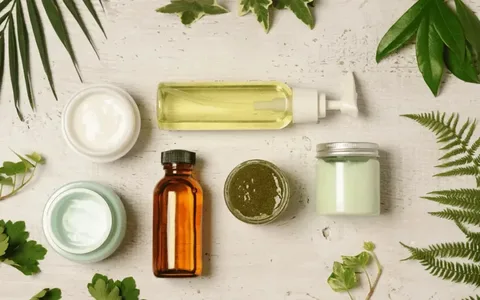Baby Skincare Products Market how organic solutions dominate new product launches

The Baby Skincare Products Market is increasingly dominated by organic solutions, as new product launches align with consumer expectations for safety, purity, and environmental responsibility. With parents becoming more cautious about what they apply to their babies’ delicate skin, manufacturers are pivoting sharply toward nature-based, chemical-free ingredients that offer both efficacy and trust.
Why Organic is Now the Standard, Not the Niche
Gone are the days when organic baby skincare was seen as a luxury or fringe category. Today, organic has become a key decision-making factor for many parents, especially millennial and Gen Z consumers who are more informed and vocal about wellness, sustainability, and ingredient transparency.
This shift has led to an explosion in the number of products that proudly display "organic", "plant-based", "certified natural", and "toxin-free" on their packaging — signaling not only safety but a lifestyle choice for conscious parenting.
What Makes a Baby Skincare Product “Organic”?
Organic baby skincare products typically:
-
Use plant-based ingredients sourced from certified organic farms
-
Avoid synthetic chemicals, parabens, sulfates, mineral oils, artificial dyes, and fragrances
-
Are free from genetically modified organisms (GMOs)
-
Have eco-friendly, biodegradable, or recyclable packaging
-
Undergo third-party certification (such as USDA Organic, COSMOS, or ECOCERT)
This rigorous standard helps brands build credibility, and for parents, it creates peace of mind.
Leading Ingredients in Organic Baby Products
New organic baby skincare launches are formulated with ingredients that are gentle yet effective:
-
Calendula: Known for its calming and healing properties, widely used in creams and diaper rash ointments
-
Coconut Oil: Acts as a natural moisturizer and skin barrier
-
Shea Butter: Deeply hydrates and is rich in vitamins A and E
-
Aloe Vera: Soothes irritation and hydrates the skin
-
Chamomile: Offers anti-inflammatory and anti-allergic benefits
Many brands are also incorporating seed oils like jojoba, almond, and sunflower oil, which mimic the skin’s natural moisture.
Organic Launches Driven by Safety Concerns
Parental concern over the potential side effects of synthetic chemicals has pushed companies to innovate with organic alternatives. Reports linking certain ingredients (like phthalates, formaldehyde, and parabens) to health risks have made parents more cautious, encouraging a shift to gentler, more transparent product lines.
Product claims such as “no nasties”, “chemical-free”, “fragrance-free”, and “pediatrician-tested” are no longer add-ons — they are essential features expected in every new launch.
Baby Brands Focusing Exclusively on Organic
Several emerging and established brands have chosen to go 100% organic from inception. Their product portfolios — ranging from lotions and oils to shampoos and wipes — are crafted entirely around organic principles.
These brands often rely on digital-first strategies, using Instagram, YouTube parenting influencers, and parenting blogs to promote their clean-ingredient narratives. Word of mouth and customer loyalty play a massive role in their growth.
Product Categories Dominated by Organic Options
-
Baby Lotions and Creams: Offering hydration without harsh additives, these are the top-selling organic products.
-
Diaper Rash Creams: Parents favor natural protectants like zinc oxide with calendula and beeswax over synthetic formulations.
-
Baby Wipes: Alcohol-free, biodegradable, and infused with botanical extracts like cucumber and aloe.
-
Bath Products: Organic shampoos and washes that are tear-free and made without SLS or artificial foaming agents.
-
Massage Oils: Organic cold-pressed oils infused with Ayurvedic or herbal properties.
Packaging that Complements Organic Identity
Many organic product launches emphasize sustainable packaging as part of their ethical approach. Recycled plastics, glass jars, refillable bottles, and biodegradable wipe packs are being adopted to reduce environmental impact.
In addition to functionality, the design language of organic products includes pastel colors, natural imagery, minimal fonts, and transparency in ingredient listings — all enhancing consumer trust.
Organic Certification as a Marketing Tool
Certifications like USDA Organic, COSMOS, or ECOCERT are more than just labels — they are key trust-building tools. Brands that achieve these certifications highlight them prominently in marketing campaigns and on packaging.
For consumers, these logos offer instant reassurance that the product has met stringent safety and sourcing standards — an important factor when it comes to baby care.
Global and Regional Trends
-
North America and Europe: These markets lead in certified organic baby product launches, supported by strict regulatory frameworks.
-
Asia-Pacific: Rising awareness and traditional herbal knowledge are fueling demand for “natural” and “herbal” certified organic products.
-
Middle East and Africa: Emerging demand driven by affluent, health-conscious consumers seeking premium baby care solutions.
Future Outlook
The dominance of organic solutions in new product development is not just a trend — it's becoming the new normal. As sustainability, wellness, and clean beauty converge, baby skincare brands will continue to evolve toward even higher standards of safety, transparency, and ethical sourcing.
In the years ahead, expect to see:
-
Expanded certification programs
-
Hybrid organic-scientific formulations
-
Customized organic skincare routines based on skin type and region
Conclusion
Organic solutions are now at the core of product innovation in the Baby Skincare Products Market. New product launches reflect a growing commitment to clean, safe, and sustainable skincare that respects both the baby’s health and the planet.
Brands that lead with organic integrity, backed by certification and clear communication, are earning parent loyalty and reshaping the future of baby skincare worldwide.
- Art
- Causes
- Crafts
- Dance
- Drinks
- Film
- Fitness
- Food
- Games
- Gardening
- Health
- Home
- Literature
- Music
- Networking
- Other
- Party
- Religion
- Shopping
- Sports
- Theater
- Wellness


